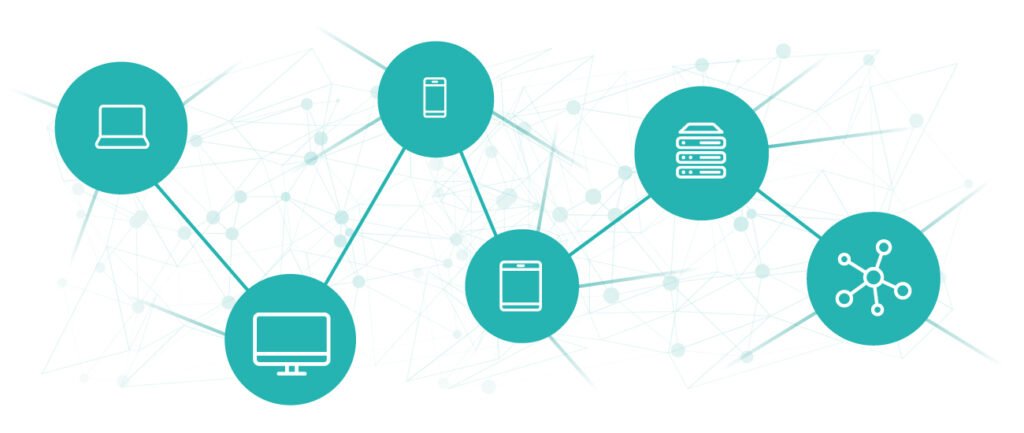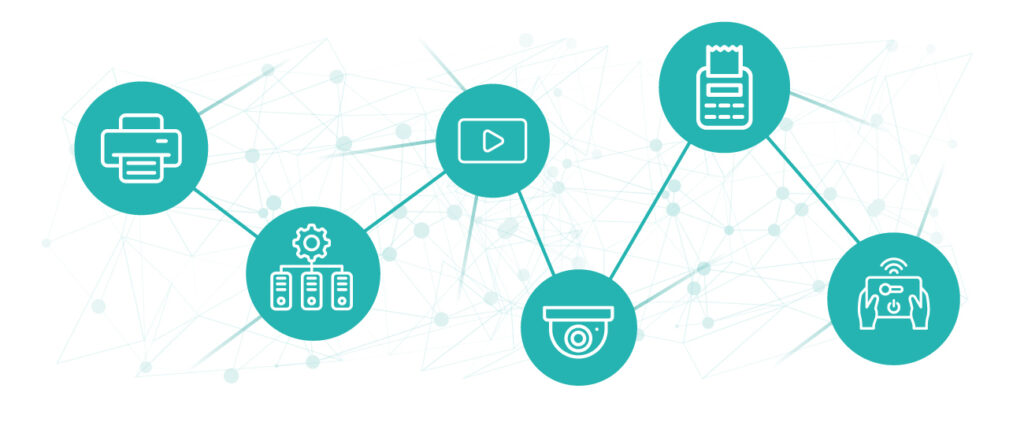What is an Endpoint? Everything You Need to Know
MCPC is a global endpoint management company and we often hear questions like, “what is an endpoint?” and “what is endpoint management?” This blog post will get back to basics and answer your endpoint questions and explain why endpoint management is such a critical endeavor for all organizations.
Let’s start at the beginning: “What is an endpoint?”
Endpoints are computing devices that are connected to a network and that communicate across the network. Endpoints create, store, and access data and are crucial to facilitating communication and collaboration across an organization.
Examples of common endpoint devices include:
- Laptops
- Desktops
- Smartphones
- Tablets
- Servers
- Internet-of-Things (IoT) devices

Less common endpoints include:
- Printers
- Virtual machines
- Digital signs
- Security cameras
- Point-of-Sale (POS) terminals
- Smart manufacturing controllers

Further, endpoints can be categorized into two categories, depending on use:
- End-user endpoints are the interface between humans and other devices on a network.
- A host device endpoint communicates with other endpoints but is not directly used by a human. These endpoints include web servers, email servers, and databases.
Endpoints enable the flow of information and data across a network, whether local or worldwide, but they are not part of network infrastructure.
As such, these devices are NOT endpoints:
- Network gateways
- Routers
- Switches
- Firewalls
Why are endpoints so important?
Endpoints allow human beings to be productive and create work that advances the goals of the organization for which they work. Endpoints are also the most vulnerable points of entry for cybercriminals so endpoint security is essential. As organizations increasingly adopt remote and hybrid workplace models, users connecting to networks from off-premises endpoint devices make protecting them increasingly important to prevent cyber-attacks.
What is endpoint management?
Organizations with a developed endpoint management strategy use tools that help them account for all of their devices, keep their endpoint software up-to-date and patched, monitor them for attempted cyber-attacks, and dispose of them securely and sustainably after they are retired from active service. Holistic endpoint management includes, but is not limited to:
- Device configuration and deployment
- Endpoint security
- IT Asset Management
- Remote endpoint management
- Patch management
- IT asset disposition
Is endpoint management more important in the ever-changing workplace?
Absolutely. As workforces evolve and more employees work remote or in hybrid arrangements, a diligent endpoint management program must be in place to keep on- and off-network devices functional and secure. This includes mobile device management (MDM) programs and BYOD (Bring Your Own Device) policies.
Is endpoint management just for Windows devices?
Not anymore. Microsoft® Windows® is still the predominant operating system in SMBs and enterprise organizations, but Apple® iOS® and Google® Android® usage is growing. Many organizations have IT environments that support endpoints from all manufacturers and thus require an endpoint management strategy that can manage multiple platforms.
As you can see, endpoint management is a complex endeavor. It’s sort of like making one teacher responsible for educating 25,000 students, who speak dozens of different languages, learning different topics, at different ages, and that live in hundreds of different locations – and doing it with near perfect accuracy so that every student gets an A+. Yeah, it’s that hard.
If you’d like to learn how letting someone else manage your complex endpoint management program can be a game-changer for your organization, contact us to have an introductory conversation. We create partnerships where endpoints are just the starting point. We protect them so you can focus on running your business.
We’re the Outcome Engineers. MCPC is a global endpoint management company, founded in 2002, and our approach inspires not just endpoint defense, but business offense. By protecting your devices, bringing simplicity to endpoint management complexity, and empowering employee performance, we reduce your business risk and increases digital innovation. Our consultative approach creates a true partnership where your endpoints are just the starting point.